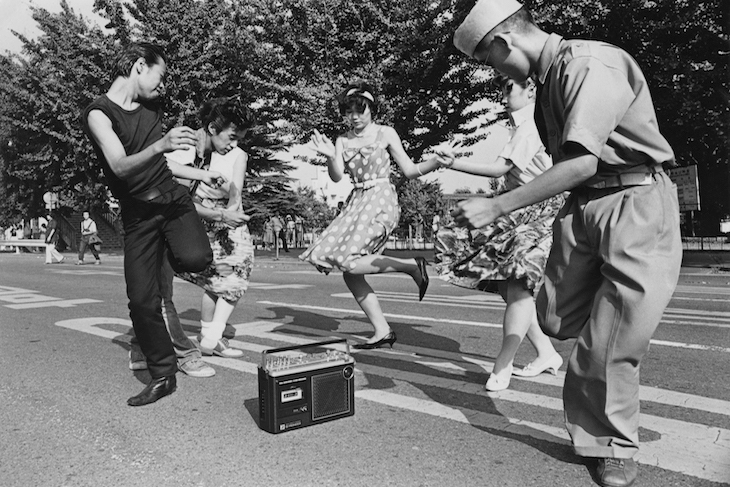In 1975, the 24-year-old Ian Buruma (now an award-winning essayist and historian, and the editor of the New York Review of Books) left his native Holland to study film at the Nihon University College of Art in Tokyo. It was a bold move. The 1970s was a wild, tumultuous decade in Japan, often known as the Showa Genroku, after the hedonistic period at the end of the 17th century, and Tokyo came as a shock to the few Westerners who went there: a teeming, neon-strafed megalopolis, where the trappings of hypermodernity jostled with elements of a sublime tradition, and the whole culture was drenched in eroticism. Buruma soon stopped going to class and spent his time watching movies by Ozu and Kurosawa at the National Film Centre, seeking out prominent actors, directors and critics, filming his own documentaries, or simply snapping pictures of the hallucinatory street life (‘Japan, especially then, was a photographer’s dream’).
This memoir, written four decades later without the aid of contemporary diaries or letters, is a triumph of artistic reconstruction. Buruma does an amazing job of conjuring the sensual presence of Tokyo — the smell in one theatre of ‘fried squid and stale sweat’, or the ‘cacophony of mechanical noise’ in the entertainment districts of Shinjuku and Shibuya — and provides expressive pen-portraits of such characters as his favourite professor, a tiny octogenarian with a ‘wet toothy grin’ who ‘slushed his words with a great deal of froth’ and referredconstantly to Charlie Chaplin as ‘Chapurin-sensei’. Buruma’s prevailing tone is witty and urbane, and he is an authoritative guide to the culture and (especially) the subculture of 1970s Japan.
The things he notices — the low-level surrealism produced by the Japanese emphasis on surfaces over depths; the bittersweet sense of ephemerality that shapes the culture — aren’t dissimilar to those noticed by other Western visitors of the time, such as Donald Richie, Angela Carter and Roland Barthes (though Buruma has the advantage over his predecessors of being able to read, as well as speak, Japanese). He shares with Carter an interest in yakuza movies and the intricate art of Japanese tattooing. But it is Richie, who became Buruma’s friend, collaborator and ‘sensei’ during this period, who figures as the book’s centre of gravity.
Richie, the pre-eminent Anglophone writer on postwar Japan, emerges as an astonishingly erudite, boundlessly enthusiastic, deeply romantic and perhaps rather lonely man. Buruma’s tone when describing him is always respectful and affectionate. After outlining the plot of a truly dire-sounding short film by his mentor (a young boy leafs through some pornographic pictures, then sticks his hand into his jeans for a quick fiddle; a black cat jumps onto his lap; the credits roll), he’s forced to concede that it was ‘by no means a great film’, but claims for it the status of ‘a noble experiment’ nonetheless.
It’s a peculiar feature of this memoir that it paints a much livelier portrait of Richie than it does of Buruma himself. This is about as far from the confessional mode as it’s possible for autobiography to go without becoming straight-up social history. True, the author is always present as a mediating intelligence, and we hear about him dropping acid and dating nude dancers and, on one occasion, breaking wind under embarrassing circumstances — but we get very little sense of what any of this costs him, or of who he is at a deep emotional and psychological level.
When he does turn his gaze inward, his prose often degenerates into concatenations of cliché, as if he can’t bear to view himself through the same sharp lens he turns on others: ‘I was in a hurry to make up for lost adolescent opportunities, and hungry for experience. But I was hedging my bets, for I still had a safe haven…’ Those are sentences that Buruma would never allow in the pages of the New York Review of Books.
Gaijin, the Japanese word for foreigner, literally translates as ‘outside person’. Buruma clearly enjoyed holding this status during his years in Tokyo — ‘hovering on the fringes was where I liked to be… an observer in the midst of sympathetic strangers’ — and it’s a role he maintains here: an engaging and perceptive witness to events, but one who holds himself slightly apart.






Comments